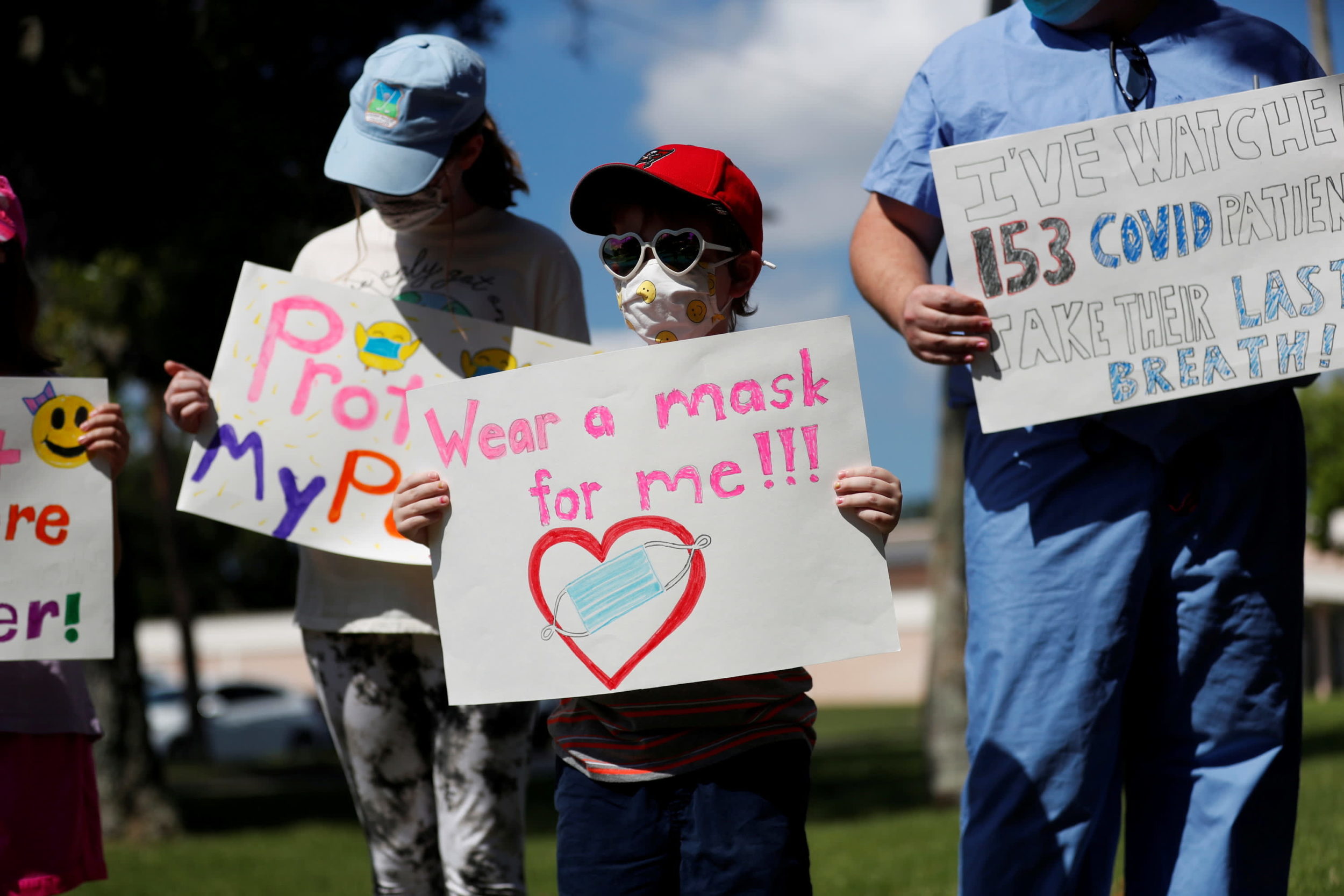
Since the beginning of the deadly COVID-19 pandemic, the constitutionality of mandates has been questioned and tested. From the first mask mandate issued by the Center for Disease Control January 2021, predicated by the dozens of mandates issued by individual states, businesses, and organizations, there has been continual protest regarding the line between individual freedom and public safety— ultimately culminating in a debate surrounding democracy and its true definition. Many argued that a mask mandate, while scientifically proven to potentially save the lives of millions of Americans, was not worth, what was believed to be, a significant infringement on the founding American principles of individual liberty and freedom. Others highlighted that the public health and safety of all Americans should continually trump these otherwise guaranteed freedoms.
This debate continually underscored any discussion surrounding masks and government issued mandates until Monday, April 18, when Trump-appointed federal judge Kimberly Mizelle of the middle district in Florida issued a ruling declaring the CDC’s mask mandates “unlawful”. Immediately following this ruling, many transportation hubs for airlines and rail dropped their mandates along with varying public transportation systems in cities such as Boston and Washington, DC. With the installation of this incredibly controversial decision, the question of federalism, constitutionality, and the state of American democracy has once again resurfaced. This ruling is indicative of a further shift towards polarization that has the potential to cause detrimental effects to the limitations of the executive branch’s authority in times of public distress by further delegitimizing executive power, further contributing to the erosion of democracy within the US in a post-Trump era.
Regardless of the Biden administration’s statement full of “disappointment,” their ability to appropriately respond to a public health crisis has now been severely diminished. As highlighted by Heather Greken, this newly reignited debate between state and federal rights has been weaponized by the Republican party in order to support a narrative driven only by total victory in elections and, therefore, furthering polarization within the nation. While public health and safety issues generally would be classified as an issue sparking unity, this politically charged federal ruling signals that this issue of state’s rights takes precedence, removing the emphasis of security and placing it upon a polarizing issue.
In addition, this further contributes to a recently created cleavage regarding COVID-19, its practices, and responses as a whole. Greken continues to add that “state-level regulatory spillovers”— effects of politically charged federal rulings on states’ decisions— have continually been weaponized in order to push the nation in the direction of polarization as it delegitimize executive decisions. While it could be argued that these rulings are necessary to prove the well-being of democracies, this specific instance which includes a politically charged judge along with a polarizing issue only signals move away from objectivity and towards polarization through an otherwise objective third-party: the bench.

Hi Mariam! I enjoyed your post as it thoroughly explains the controversy of mask mandates in the US. It’s sad to see America in such a prisoner’s dilemma that they would rather sacrifice others than to simply put on a mask as a preventative measure. Your post helped me realize that it is also part of a much bigger problem as everything is heavily politicized in the US for political gain. Coming from Indonesia, it has been very interesting to see how different governments and the people respond to a global health crisis.